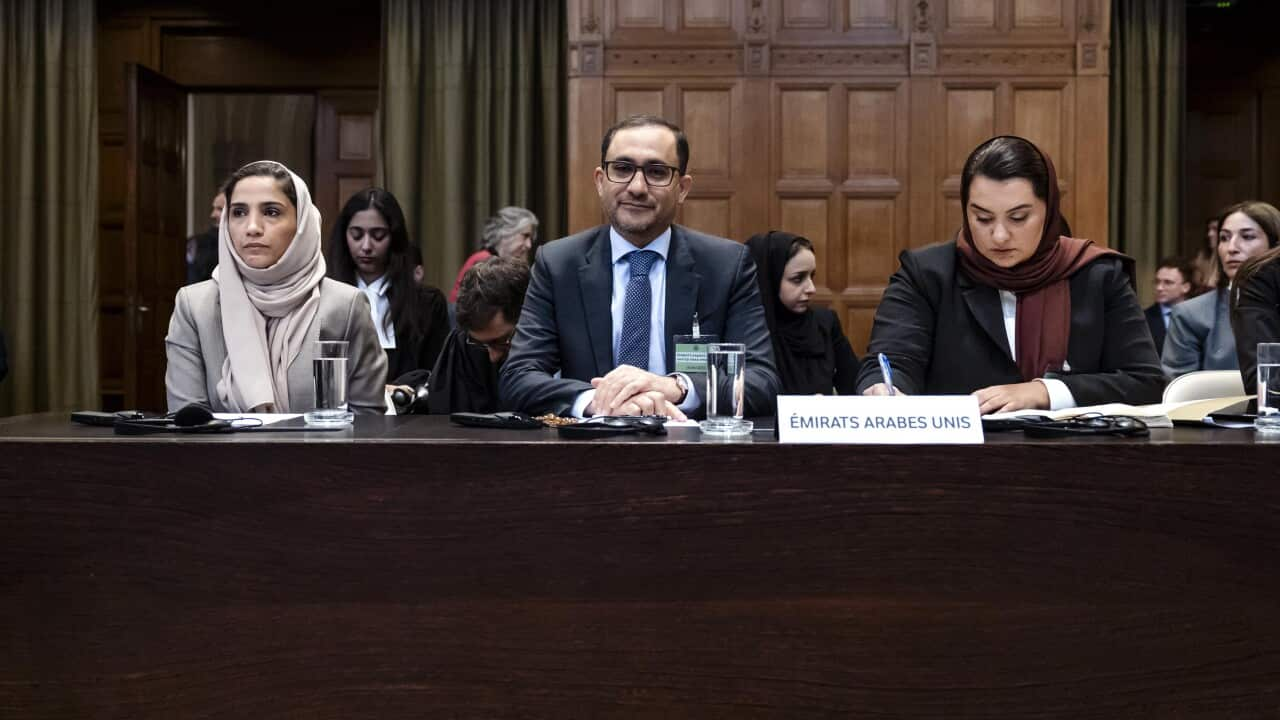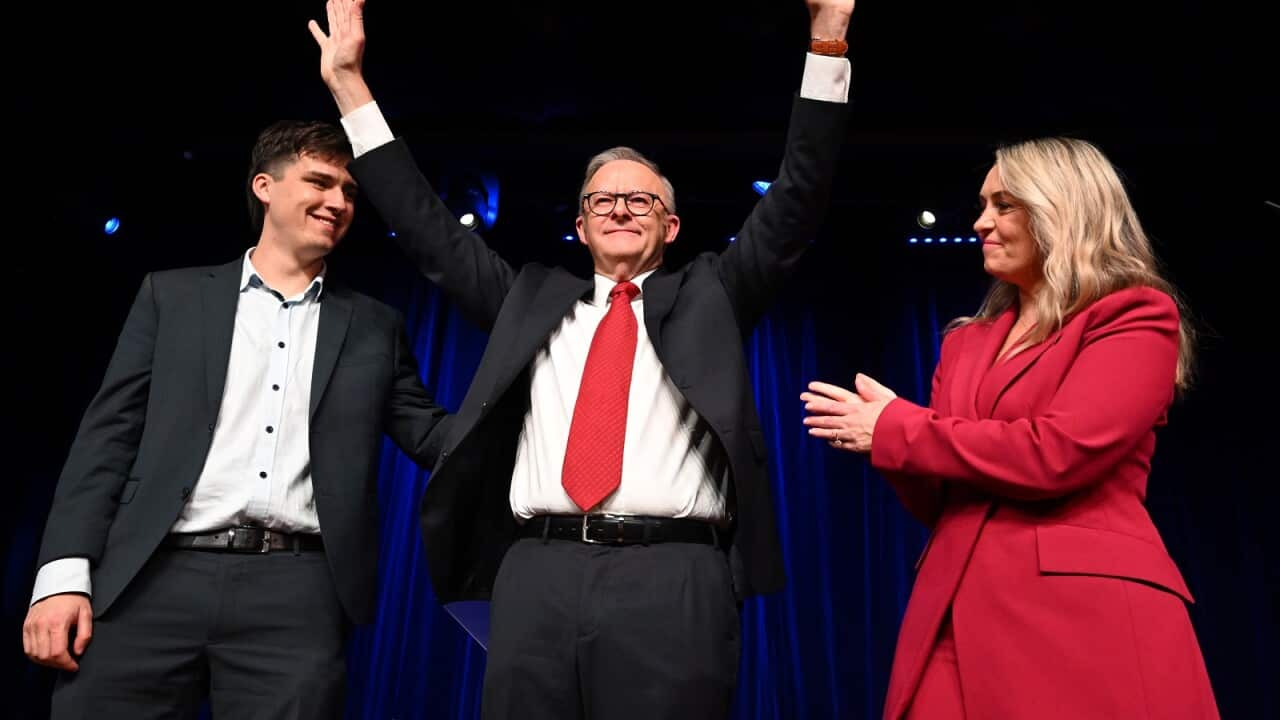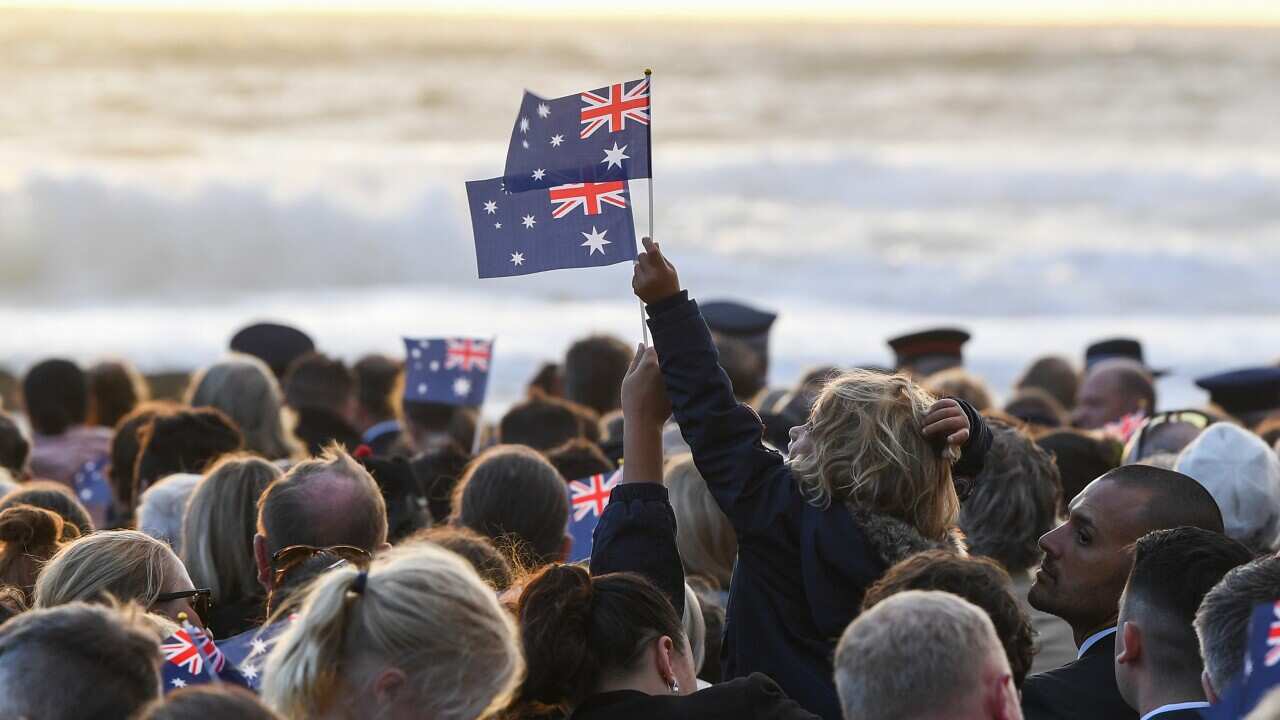“A genocide is being committed against the ethnic group, the Masalit, in the west of our country. The Masalit are a non-Arab African ethnic group. The genocide against the Masalit is being carried out by the Rapid Support Force, predominantly Arab from Darfur, with the support and complicity of the United Arab Emirates.”
Inside the International Court of Justice, Sudan's Acting Justice Minister Muawia Osman, has told the court the United Arab Emirates is violating the Genocide Convention.
Since 2023, the civil war between the Sudanese Armed Forces and a militia group known as the Rapid Support Forces has created what the International Rescue Committee reports is the largest humanitarian crisis in the world.
Now, Sudan's government has taken the UAE to court, accusing it of complicity in genocide through its alleged backing of the RSF.
Reem Ketait is a top official at the UAE Ministry of Foreign Affairs.
She told the court Sudan's claims are false.
“Since the start of the war, the UAE has not provided any arms or related materiel to either of the warring parties. Rather, since the very beginning of this conflict, the UAE has worked tirelessly to alleviate suffering. The UAE has engaged with partners, including the United Nations, to deliver over 600 million dollars of assistance to support all of those in need throughout Sudan and neighbouring states without discrimination.”
In the case, Sudan claims the RSF and its affiliates are responsible for serious human rights violations including mass killings, rape and the forced displacement of the non-Arab Masalit people in West Darfur.
The paramilitary Rapid Support Forces were formed in 2013 and currently control most of Sudan's west Darfur region and parts of the south.
Since the civil war broke out, at least 150,000 people have been killed, according to estimates from the U-S Special Envoy for Sudan.
UNHCR is reporting more than 12 million displaced, and an official famine has been declared in the state.
Sudan's Acting Justice Minister Mr Osman says the UAE is still supporting these atrocities.
“The direct logistic and other support that the UAE has provided and continues to provide to the RSF and their affiliated militia has been, continue to be the primary driving force behind the genocide now taking place, including through killing, rape, forced displacement, looting and the destruction of public and private properties.”
The RSF has previously sent forces to Yemen on behalf of Saudi Arabia and the UAE and has also fought in Libya alongside other UAE backed forces.
Some experts see the U-A-E's alleged backing as part of a broader strategy, with hopes to build a network of clients across the African continent and extend UAE's influence over the Red Sea.
UN experts monitoring the arms embargo on Darfur have previously found evidence to support claims the U-A-E is smuggling weapons to the RSF through Chad, in Africa.
But Reem Ketait says there is no basis for the allegations.
“So when the applicant suggested this morning that it had no choice but to file this case, that is just not true. The applicant rushes to this podium in The Hague, but for two years it has left its seat at the negotiation table empty. Mr. President, against this context, the idea that the UAE is somehow the driver of this reprehensible conflict in Sudan could not be further from the truth. This case is the most recent iteration of the applicant's misuse of our international institutions as a stage from which to attack the UAE. At every occasion, including here today, the applicant has levelled allegations that are at best misleading, and at worst, pure fabrications.”
Initiated last month, Sudan's case comes after the United States accused the Rapid Support Forces of committing genocide, and placed sanctions on seven RSF-owned companies based in the United Arab Emirates for helping the group procure weapons.
The UAE, now calling for the case to be thrown out, not only denies its support for the group but also argues the court has no jurisdiction over the issue.
While the UAE is a signatory of the UN's Genocide Convention, it entered a reservation on a key clause, enabling countries to take each other to the ICJ over disputes.
Sudan argues that the reservation is incompatible with the purpose of the Genocide Convention, which emphasises global collective responsibility to prevent the world's worst crimes.
World Food Programme Regional Emergency Coordinator for Sudan, Shaun Hughes, says the humanitarian crisis is man-made.
"This is a man-made crisis. Man-made because it is driven by conflict, not by drought or floods or earthquakes, and man-made because of the obstruction of access to humanitarian assistance by parties to the conflict. Tens of thousands more people will die in Sudan during a third year of war, unless WFP and other humanitarian agencies have the access and the resources to reach those in need."
Cases before the International Court of Justice can take years to be resolved.
With reports the situation in Darfur is still deteriorating, the Sudanese Justice Minister asked the court to order the UAE to prevent genocidal acts against the Masalit.
The judges generally rule on possible emergency preventative measures a few weeks after the initial hearings.
In Port Sudan, displaced resident Abdel Latif Abdel Hamid says the outcome of the case will be consequential for the court.
“The case is now in front of it (the ICJ), and we await a response. If the response is positive, then we know that there is an international justice, and people can respect it and rely on it. But if there is any stalling, it will mean the end of ICJ itself. What has happened in Sudan is destruction of infrastructure, genocide, rape, displacement, theft even of culture and heritage, and forced displacement of the entire population."













